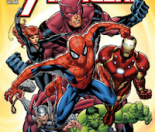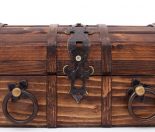It’s easy for us to forget that events in our (fairly recent) past – things that we were involved in or might be able to remember – count as “history” for our children. The 1960s, 70s and 80s – the Springbok tour, the Erebus disaster, the Rainbow Warrior – all history.
It’s also easy to take our own knowledge for granted and forget that our children might not know these things. In fact it’s often by talking to us that they start to gain a knowledge of our world, our country and our history.
As a writer, I love trying to bring history – especially New Zealand history – alive for my readers. I love unearthing facts and information that reveals a lot about the past, while making it accessible and (hopefully) a gripping read.
When I do school visits and talk about my latest book – on the history and meaning of Anzac Day – I usually find that some children know a lot about Anzac Day, some don’t know anything and most fall somewhere in the middle. One of the reasons I wrote the book was to make Anzac Day services more meaningful for them, by giving them a greater understanding of what the different parts of the service man and how they developed over time.
I thought at first that it would be easily told and fairly short, but I was astonished at how much information and how many fascinating stories I kept coming across. When I talk to children about the book, it’s the stories – Simpson and his donkey, the nurses, the stretcher bearers, the conscientious objectors – that capture their attention.
Since the book has been published, a number of people have shared with me their own stories of what Anzac Day means to them, or how war has impacted on their family. Anzac Day has changed over the years and it seems to me that it’s a day for all of us, and a day around which we can start and continue to build our own traditions, even if it’s something as simple as baking a batch of Anzac biscuits.
Here are a few ideas for family traditions you could start:
Go to the dawn service! I know this can seem daunting when many parents of young children are surviving on little enough sleep as it is. The idea of getting up any earlier than you have to can see this relegated to the “too hard” basket. So this might be something that you can’t see yourself doing for a year or two. But when you get there, it will be worth it! You don’t all have to go. For some years, my husband used to take one of our older daughters to the dawn service while I went to the local service later that morning with the younger ones. You could set an age at which they can first attend, to make it more special and almost like a “rite of passage” occasion.
Visit your local library or bookshop beforehand and borrow or buy some of the many wonderful children’s books on war, Gallipoli or Anzac Day. Ask the librarians or booksellers if you’re not sure what would be a good choice for your children.
Go to your local war memorial later in the day to see the wreaths that have been laid there and read the messages on them.
Talk to your kids about any family members who went to war. You might be able to look them up on databases like the Auckland Museum Cenotaph database.
Search out a service that you haven’t attended before, or a war memorial that you haven’t visited before. The local services are usually listed in the papers or on websites – just Google “Anzac services” or look at the RSA website. There is a map of war memorials all around the country on the New Zealand History Online.
Because of how the school terms operate now, Anzac Day can often fall in the school holidays (or long weekend.) If you are travelling, look up a war memorial that you might be passing and stop to have a quick look at it.
If you are going to be away from home, or you can’t get to an Anzac service for any reason, ask your kids to create their own service and invite the family and maybe friends and neighbour to attend.
These are all just ideas, and your family might already have its own special way of marking Anzac Day. But it would be great to hear lots of children saying, “On Anzac Day we always….”
Philippa Werry is author of Anzac Day – the New Zealand Story: What it is and Why it Matters – an accessible, factual and easy-to-read illustrated book for children, teaching a new generation about the tragic sacrifices made by our young men and women, from the Gallipoli Campaign, right through to the Great War and the relevance of Anzac Day today








[…] Marking Anzac Day as a family – guest blog for Kiwi families. […]